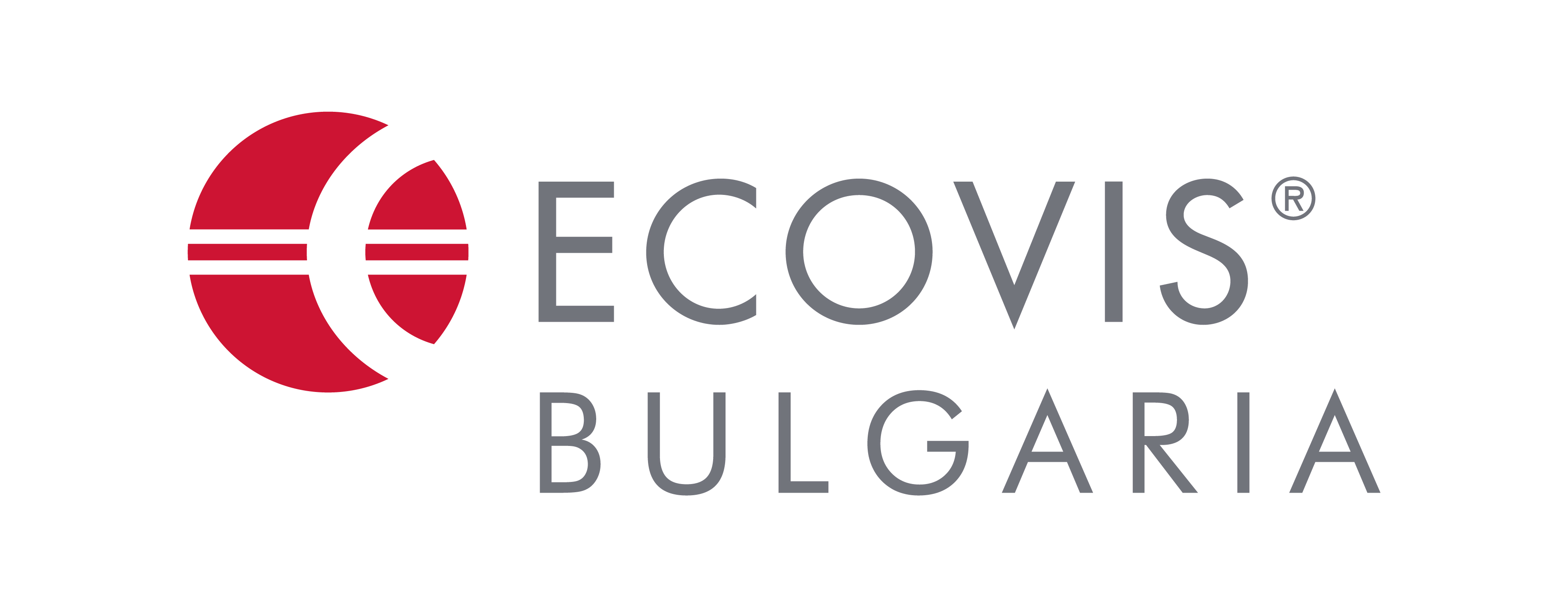
How much is income tax in Bulgaria | Tips from experts
Ecovis | 24 April 2024
In this article by "Ecovis" you will learn the essentials about income tax and get answers to your questions about incorporation. You'll also find out about how to file your income tax return, so stay to the end.
What is profit tax?
Profits tax is the percentage you pay to the government on your company's profits. This tax is levied on the income of legal entities such as trading, non-trading and unincorporated companies etc.
Your company's annual profit can be calculated by subtracting annual expenses from annual income. This profit will help you to calculate the tax you need to declare for that year.
How much is income tax in Bulgaria
Profit tax, also known as corporation tax, is ten percent, or 10% of your profits. By calculating your profit, you can find out very easily how much is the tax you have to declare to the government. For example, if your company has revenue that equates to £70,000 and expenses of £50,000, your profit would be £20,000. Ten percent of this profit must be declared as tax. Your tax will therefore be £2,000. Certain income and expenses are not recognised for tax purposes under the law and the result is adjusted for tax purposes.

Subject to taxation | How much is the profit tax in Bulgaria
The object of taxation of this type of tax is the income of domestic legal entities from sources in Bulgaria and abroad and the income of foreign legal entities from a source in the country.
Taxable persons | How much is profit tax in Bulgaria
Taxable persons are domestic and foreign legal entities that have a tax liability under the law and legal representatives of the said persons.
Who does not pay profit tax
Corporate income tax is not payable by persons who are subject only to alternative taxes for the relevant activity referred to in Article 5(5) and Part Five of the Income Tax Act:
- Taxi passenger transport activities;
- budget undertakings;
- organisers of games of chance
- persons engaged in the business of operating ships.
Gambling operators and persons carrying on the business of operating ships shall be subject to corporation tax on all other activities outside those subject to the alternative tax. Consequently, these persons are liable for income tax on their activities outside those subject to the alternative tax (Article 5(5) and Article 218(2) of the Income Tax Act).
Tax base, rate and period
Tax base for profit tax
Art. 19 of the Income Tax Act - The tax base for determining the corporate income tax is the tax profit. Which profit we calculated at the beginning of the article.
Tax rate
The tax rate of the corporate income tax is 10% or 10% as we mentioned above. (Art. 20 of the Corporate Income Tax Act)
Periods and deadlines for declaring your profits tax
Corporate income tax declaration deadlines
The declaration under Article 92 of the Income Tax Act must be filed by 30.06 of the following year and corrections can be made until 30.09 of the following year. The deadline for payment of the tax is 30.06 of the year following the reporting year. From 1 March to 15 April of the current year is the deadline for declaring the type and amount of advance payments for the current year (Article 87a of the CCCT). Applies to companies with a turnover of more than BGN 300 000 for the year preceding the previous year. I.e. advance contributions for 2024 are made in case the turnover for 2022 is over 300 000 lv. By 15 November, legal entities may submit a declaration pursuant to changes to advance contributions. Changes of contributions can be used only after its filing.(art. 88)
It is important to know that in order to benefit from a reduction or increase in the monthly advance contribution for the month of December, or in the quarterly advance contribution for the third quarter with a due date of 1 December, the declaration must have been filed by 15 November of the year concerned at the latest.

In case of initial declaration of quarterly advance contributions by companies newly established as a result of a reorganisation, the declaration should be filed within the time limit for making the first quarterly advance contribution after the reorganisation. The declaration shall be submitted electronically through the NRA's e-services portal, accessible with an electronic signature (CEP).
Submission deadlines:
Monthly advance payments - for the months of January, February and March - by 15 April, for the months of April to November - by the 15th of the current month, and for the month of December - by 1 December; Quarterly advance payments - for the first and second quarter - by the 15th of the month following the quarter, and for the third quarter - by 1 December. No advance payment shall be made for the fourth quarter.
Profit tax declaration process and methodology
You declare the tax due through an annual tax return, which you file online with an electronic signature. Your authorised representative can also file the return.
With the annual tax return you also submit the annual activity report (Article 92(3) of the Income Tax Act). The annual activity report is the one referred to in Article 20(4) of the Statistics Act (Section 1(56) of the VAT Act).
How and where do we submit the documents?
The declaration shall be submitted only electronically with a qualified electronic signature (QES) through the electronic portal of the National Revenue Agency (NRA).
The use of the service with the CEP requires that:
An application for electronic submission of documents and use of the electronic services provided by the NRA with the obliged person's CEP and confirmed full/partial access to the NRA services or An application for electronic submission of documents and use of the electronic services provided by the NRA with the CEP of an authorised person with full/partial access to the service "Declarations, documents or data submitted by legal persons" requested and confirmed.

Scope of profit taxation
Profits tax in Bulgaria applies to various business activities and sources of income. Companies registered in Bulgaria have to pay profit tax. Foreign legal entities operating in Bulgaria are subject to tax on income derived from Bulgarian sources.
Profit tax covers income from trading activities, services and production. It also includes profits from property sales, financial transactions and intellectual property rights. Certain passive income, such as interest and royalties, falls within the scope of profit tax.
Both domestic and foreign entities must comply with the profit tax provisions. Resident companies are taxed on their total income, while non-residents are taxed only on income from domestic sources.
There are specific rules for calculating taxable income. These rules include allowable deductions, adjustments and exemptions. Deductible expenses may include operating expenses, depreciation and interest expenses. Companies must thoroughly document and substantiate these deductions to comply with tax regulations.
Special regimes apply to certain sectors, such as agriculture and small businesses. These regimes may offer tax incentives or reduced rates. Businesses in these sectors need to understand the specific requirements to benefit from these provisions.
Entities subject to profit tax
Profits tax in Bulgaria applies to various entities carrying out economic activities. All companies registered under Bulgarian law are subject to profit tax. This includes joint stock companies, limited liability companies and partnerships.
Foreign legal entities operating in Bulgaria are also subject to profit tax. These entities must pay tax on income derived from Bulgarian sources. Representative offices of foreign companies are generally exempt from tax unless they carry on a commercial activity.
However, are the expectations the same for different workers? Are the laws the same for professionals or LLCs)? They are not, that's what the differences are:
Nonprofit organizations are not exempt from income tax. If they are carrying on a business, they have to pay tax on the profits for the income they earn. The tax is only charged on income received from these activities, not on donations or grants.
Sole traders and the self-employed must pay income tax on their business income. It is separate from personal income tax and subject to specific rules and rates. These individuals must keep accurate records to ensure compliance with their tax obligations.

Expert advice on optimising income tax
Optimising income tax involves strategic planning and meticulous record keeping. To ensure these accounts are accurate you can seek accounting services. Businesses should regularly review their financial statements to identify potential tax saving opportunities. Accurate and up-to-date documentation is essential for claiming deductions and credits.
One effective strategy is to increase the maximum allowable deductions. Businesses can deduct expenses such as operating expenses, wages and depreciation. Ensuring that these expenses are well documented and substantiated can significantly reduce taxable income.
Investing in tax-efficient assets can also optimize income tax. Some investments, such as research and development, may qualify for tax incentives or credits. These incentives can reduce the overall tax liability of the enterprise.

Using tax loss carryforwards is another valuable strategy. Companies with past losses can use them to offset future taxable income. This can reduce income tax payments in profitable years.
Transfer pricing policies must be managed carefully. Transactions between related companies should be carried out at market prices to avoid tax penalties. Proper documentation and compliance with international guidelines are critical in this area.
What will happen after filing?
First the sender will receive an automatic message with an incoming number. The result of the processing of the return will be sent to the obliged/authorised person's e-mail address in a notification of acceptance or rejection of the return.
The declaration, as an electronic document, shall be deemed to have been submitted if it is signed with the CEP of the debtor or his authorised representative. This information is also available through the person's profile in the electronic services provided by the NRA with the CEP.
In case of incorrect or rejected data, on the basis of Article 102(4) of the Tax Code, within 7 days from the date of the notification of the rejected data, the filer is obliged to submit a new, compliant declaration.
We hope this article has been useful to you and that you can now determine your income tax and file the required documents without any problem!
 Make an inquiry
Make an inquiry